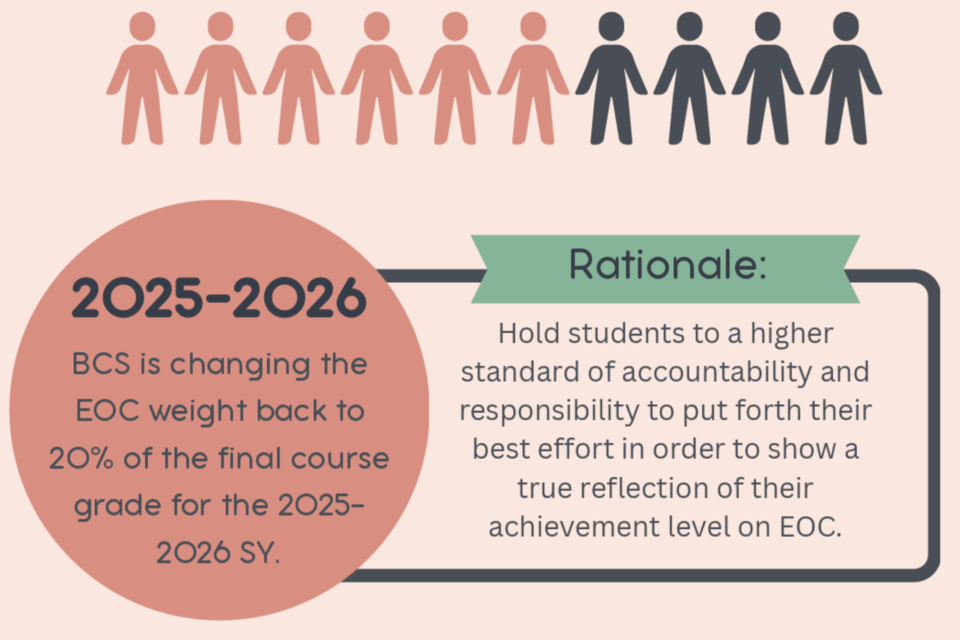In a move aimed at enhancing student accountability and improving school performance scores, the Bulloch County Board of Education was updated on an adjustment to the weight of End-of-Course (EOC) assessments, increasing their impact on a high school student's final grade from 10% to 20%. The change will be effective for the upcoming school year.
The decision comes after school officials observed "unintended consequences" stemming from the previous 10% weighting, which was implemented following the COVID-19 pandemic to alleviate student stress. Teresa Phillips, Assistant Superintendent of Schools, presented a comprehensive overview of the history of high school testing in Georgia, detailing the evolution from multiple assessments and graduation tests to the current streamlined EOC system.
She explained that in August 2023, the State Board of Education granted local districts the flexibility to set the EOC weight between a minimum of 10% and a maximum of 20%. Bulloch County initially opted for the lower 10% to reduce pressure on students during a period of recovery.
However, high school principals reported that the minimal impact of the EOC on overall grades led some high-achieving students to underperform on the state-mandated tests. Examples were provided where students with high classroom averages (93-95) still earned "fails" on their EOCs, yet maintained an "A" in the course due to the low 10% weight. Dr. Julie Mizell, SEB Principal, Dr. Julie Blackmar, PHS Principal, and Keith Wright, SHS Principal, all spoke in favor of the change.
"With the EOC accounting for only a small portion of the final course grade, many students have come to view the assessment as having minimal impact on their overall average," Phillips stated during the presentation. "As a result, some high-achieving students have calculated that they can earn a significantly low EOC score and still maintain an A in the class."
While these individual student grades remained high, the lower EOC scores negatively impacted the school's College and Career Ready Performance Index (CCRPI) scores, a critical measure of school effectiveness.
"The EOC is a state test that measures all of the standards that they learned in the course," Phillips emphasized. "We want it to be a true reflection as the students take it of how they've done. We feel that with this 10%, it's not; it's just become a game, and we feel like we need to try to raise that."
The adjustment to a 20% weight is intended to hold students to a higher standard of accountability and responsibility, encouraging them to put forth their best effort on these comprehensive assessments. Board members expressed support for the change, noting that a higher weight would likely incentivize students to study more diligently for the EOCs.
The student handbook will be updated to reflect this change, and a communication plan is in place to inform all stakeholders about the new weighting. Although remediation and retesting options are available for students who pass the class but fail the EOC, these are currently voluntary. Board members and principals anticipate that the increased EOC weight will encourage more students to take advantage of these opportunities if their grade is significantly affected.
Click here to view Assistant Superintendent Phillips's presentation slide deck.




